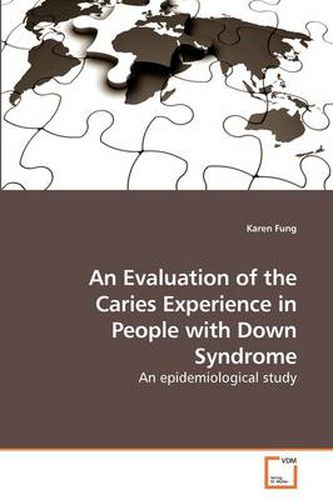Readings Newsletter
Become a Readings Member to make your shopping experience even easier.
Sign in or sign up for free!
You’re not far away from qualifying for FREE standard shipping within Australia
You’ve qualified for FREE standard shipping within Australia
The cart is loading…






This title is printed to order. This book may have been self-published. If so, we cannot guarantee the quality of the content. In the main most books will have gone through the editing process however some may not. We therefore suggest that you be aware of this before ordering this book. If in doubt check either the author or publisher’s details as we are unable to accept any returns unless they are faulty. Please contact us if you have any questions.
BACKGROUND: Recent literature on the dental health of people with Down syndrome (DS) is scarce. The caries experience of this cohort is also confused with mixed results. AIM: To evaluate the caries experience of people with DS compared to people without DS. METHODS: In a cross-sectional study, the caries experience was assessed by a crude DMFT score and an adjusted DFT score expressed as a percentage of caries-affected teeth to adjust for hypodontia in the DS group. Multiple logistic and linear regressions were used to compare both groups, controlling for all predictors. RESULTS: Of 44 DS and 84 non-DS subjects, the adjusted DFT showed non-significant differences (p=0.18). The crude DMFT was borderline significant (p=0.06), while people without DS were most likely to have caries compared to the DS group (OR, 4.6; 95% CI, 1.5-14.0). CONCLUSION: Independent of other predictors, the caries experience was greater in people without DS, without adjusting for the number of teeth. However when this factor is considered, the caries experience is the same. AUDIENCE: This study is beneficial for dentists, dental public health professionals, and epidemiologists.
$9.00 standard shipping within Australia
FREE standard shipping within Australia for orders over $100.00
Express & International shipping calculated at checkout
This title is printed to order. This book may have been self-published. If so, we cannot guarantee the quality of the content. In the main most books will have gone through the editing process however some may not. We therefore suggest that you be aware of this before ordering this book. If in doubt check either the author or publisher’s details as we are unable to accept any returns unless they are faulty. Please contact us if you have any questions.
BACKGROUND: Recent literature on the dental health of people with Down syndrome (DS) is scarce. The caries experience of this cohort is also confused with mixed results. AIM: To evaluate the caries experience of people with DS compared to people without DS. METHODS: In a cross-sectional study, the caries experience was assessed by a crude DMFT score and an adjusted DFT score expressed as a percentage of caries-affected teeth to adjust for hypodontia in the DS group. Multiple logistic and linear regressions were used to compare both groups, controlling for all predictors. RESULTS: Of 44 DS and 84 non-DS subjects, the adjusted DFT showed non-significant differences (p=0.18). The crude DMFT was borderline significant (p=0.06), while people without DS were most likely to have caries compared to the DS group (OR, 4.6; 95% CI, 1.5-14.0). CONCLUSION: Independent of other predictors, the caries experience was greater in people without DS, without adjusting for the number of teeth. However when this factor is considered, the caries experience is the same. AUDIENCE: This study is beneficial for dentists, dental public health professionals, and epidemiologists.